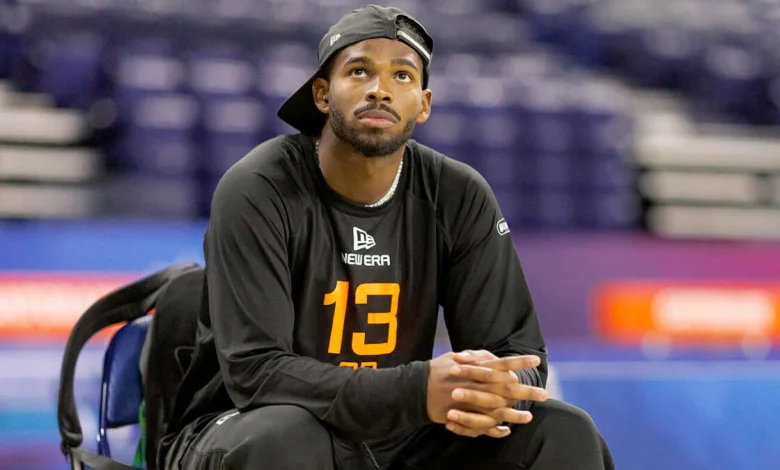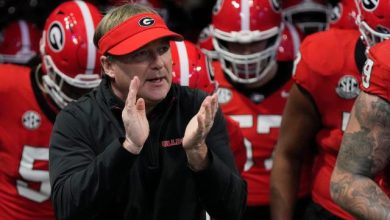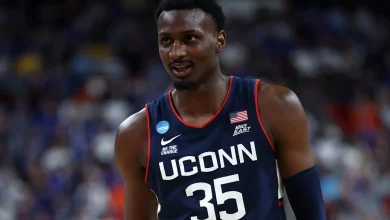Here’s how much money Shedeur Sanders missed out on by not being drafted in first three rounds

For months leading into the 2025 NFL Draft, Shedeur Sanders was one of the most talked-about quarterback prospects. The Colorado star, son of NFL Hall of Famer and Buffaloes head coach Deion Sanders, captivated the college football world with his poise, strong arm, and leadership on and off the field. Many believed he would be a first- or second-round pick, with projections placing him anywhere from the late first to mid-second round.
But as the dust settled after three rounds of selections, Sanders’ name was still on the board. While draft position isn’t the sole determinant of a player’s career success, there’s no denying that the financial implications of dropping out of the top 100 picks are significant.
Here’s a detailed look at how much money Shedeur Sanders missed out on by not being selected in the first three rounds of the NFL Draft — and what it means for his future.
Rookie Contracts: How NFL Draft Position Shapes Paydays
The NFL operates under a structured rookie wage scale, meaning draft position essentially determines a player’s rookie salary, bonuses, and contract structure.
Players selected in the first round typically sign four-year contracts with a team option for a fifth year. The deals are fully guaranteed and often come with lucrative signing bonuses. First-round picks in 2025 are projected to earn anywhere between $12 million and $40 million total, depending on their exact slot.
In the second and third rounds, rookie contracts remain sizable but dip considerably compared to the first round. A second-round pick can expect a deal in the range of $6 million to $9 million over four years, with a partial guarantee. A third-round pick might earn $4 million to $5 million, with smaller signing bonuses and less financial security.
Once players fall into the fourth round and beyond, the gap widens further. Fourth-round contracts typically total around $4 million or less over four years, with only small portions guaranteed — sometimes as little as the signing bonus.
What Shedeur Sanders Lost by Not Being a Top-100 Pick
Given that Sanders was once projected as a second-round prospect, the financial loss is measurable.
Let’s break it down:
- Estimated Second-Round Salary: If Sanders had been picked, say, 45th overall, he would have likely signed a four-year deal worth around $8 million, with about $3.5 million guaranteed (including a signing bonus of roughly $2.5 million).
- Estimated Third-Round Salary: If he had slipped to the late third round (around pick 90), he would have still been looking at a four-year deal worth $5 million with about $1.5 to $2 million guaranteed.
Now, by sliding into the fourth round (or later if he fell even further), Sanders’ contract is likely to be worth:
- Projected Fourth-Round Salary: Roughly $4 million or less over four years, with a signing bonus of $300,000 to $500,000.
The total loss in immediate rookie contract value?
Somewhere between $1 million and $4 million, depending on where he ultimately is selected.
And that’s just the base contract.
The Real Impact: Lost Guarantees and Leverage
The most painful aspect of Sanders’ slide isn’t just the lower salary — it’s the loss of guaranteed money.
First-, second-, and even early third-round picks often receive multi-million-dollar guarantees that provide financial security even if they get injured or don’t develop as planned.
For later picks, contracts are much more precarious. Teams can cut a fourth- or fifth-rounder with minimal financial penalty. Players drafted in these rounds must essentially “earn” their keep year-to-year.
If Sanders had been picked earlier, he could have walked into the NFL with financial stability secured. Now, he’ll need to prove himself quickly to stick around and earn that second, much larger contract.
Why Shedeur Sanders Fell: A Closer Look
Shedeur’s slide wasn’t completely out of nowhere, though it surprised many casual fans. Scouts and draft insiders had been warning for weeks that Sanders might fall due to a few key factors:
- Concerns About Transitioning to NFL Offenses:
Some evaluators felt that Colorado’s offense didn’t prepare Sanders well for the complexities of NFL schemes. His pocket presence and ability to work through progressions came under scrutiny. - Offensive Line Issues at Colorado:
While not directly his fault, Sanders took a pounding behind Colorado’s porous offensive line. That exposure may have raised durability questions. - Family Dynamics:
Fair or not, some teams worried about potential distractions tied to his high-profile family — particularly the influence of Deion Sanders, a massive media presence. - Depth of Quarterback Class:
The 2025 draft class was deep at quarterback, and teams that needed QBs had already addressed their needs early.
Ultimately, none of these concerns necessarily doom Sanders’ career, but they contributed to him being viewed as a bigger risk compared to other prospects.
What Happens Next for Shedeur Sanders
Even with the disappointment of draft day, all is far from lost for Sanders.
Players drafted later can still carve out incredible NFL careers. Think of quarterbacks like Dak Prescott (4th round) or Kirk Cousins (4th round), both of whom overcame modest draft positions to earn massive second contracts worth more than $100 million apiece.
For Sanders, the path forward is simple but difficult:
- Prove himself in training camp: He’ll need to quickly learn the playbook, impress coaches, and earn a backup role — or perhaps even push for a starting spot in a couple of years.
- Stay healthy: Durability will be key, especially given the physical demands of the NFL.
- Leverage his marketability: Sanders has a huge built-in fan base, and even as a later-round pick, he can maximize NIL deals, endorsements, and media opportunities.
- Play the long game: Financially, the rookie contract is just the beginning. If Sanders performs well over the next few seasons, he could set himself up for life-changing money on his second NFL contract.
Deion Sanders’ Message to His Son
In the aftermath of the draft’s early rounds, Deion Sanders posted a heartfelt message on social media:
“We don’t measure success by how they pick you. We measure success by how you perform when it’s your time. Stay ready, son.”
That mindset has been a hallmark of Shedeur’s journey thus far. Critics doubted him when he transferred from Jackson State to Colorado, and he responded with record-breaking performances. Now, he faces a new challenge — and a new opportunity to silence doubters once again.









